
It has been a year of feast and famine for Hollywood. The domestic and global box office for a few movies that opened in 2015 could only be described as gargantuan, driving the North American box office to a record $11 billion in total grosses. The top six films of the year accounted for a full 25% of that $11 billion; meanwhile, a litany of wannabe blockbusters in 2015 faced total audience rejection, and more became costly mega-budgeted bombs. While the first half of the year saw a dramatic boost in overall ticket sales, box office for the second half of 2015 featured precious few financial bright spots. Even highly anticipated movies like the newest James Bond film Spectre and the final Hunger Games movie Mockingjay – Part 2 considerably underperformed when compared to their predecessors. So while overall grosses were at an all-time high, ticket sales for the year only jumped modestly from 2014's disastrous 25-year low — and only due to the box office might of Star Wars: The Force Awakens.

Along with BuzzFeed News' midyear assessment of the biggest winners and losers in movies, there were plenty of studios, filmmakers, and actors with a lot to celebrate in 2015, and many who are eager to put the year behind them.
Winner: Universal Pictures
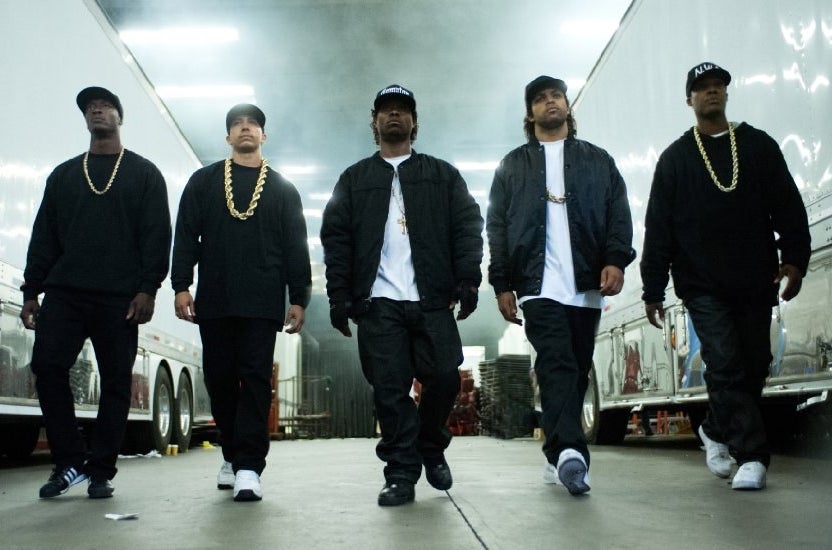

This is how spectacularly great Universal's 2015 has been: The studio has not had a genuine hit since Straight Outta Compton opened in August — and several of its movies since are among the year's biggest flops — but it will still end 2015 with the highest box office grosses both domestically ($2.45 billion) and internationally ($4.44 billion) of any studio in Hollywood history. Along with Straight Outta Compton, that landmark is due to the one-two-three-four-five punch of Fifty Shades of Grey, Furious 7, Pitch Perfect 2, Jurassic World, and Minions — all together, these half dozen films made a mind-boggling $5.4 billion worldwide.
What's next? Universal's 2016 slate looks solid: There's the Coen brothers' Hollywood satire Hail, Caesar! in February, My Big Fat Greek Wedding 2 in March, The Huntsman: Winter's War in April, Neighbors 2: Sorority Rising in May, The Secret Lives of Pets and the next Bourne movie in July, and Bridget Jones's Baby in September. No one, however, expects those films to come close to equaling Universal's 2015, but almost no studio could. Well, except for…
Winner: Disney

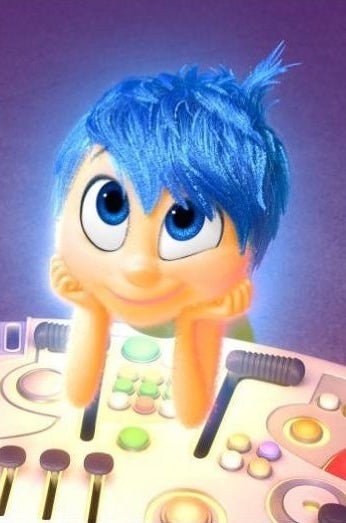

For the first time, the Walt Disney Company unleashed the full firepower of its quartet of semiautonomous movie divisions, and the result was nothing less than astonishing. Pixar Animation Studios enjoyed its biggest hit in five years with Inside Out ($856.1 million worldwide). Marvel Studios opened its second biggest film ever with Avengers: Age of Ultron ($1.4 billion). Walt Disney Studios' campaign to make successful live-action blockbusters out of its animated classics continued with Cinderella ($542.7 million). And Lucasfilm's Star Wars: The Force Awakens has made $1.2 billion in just 12 days. Just these four films earned $4 billion at the global box office, which more than made up for Tomorrowland, an expensive flop. The studio is really just getting started — and not too soon, given that concerns about the company's cable TV division have been dragging down its stock price.
What's next? More than any other studio, Disney's 2016 slate has the potential to deliver a giant pile of money that would be unlike anything Hollywood has seen. Walt Disney Studios will release the fact-based thriller The Finest Hours in January, Jon Favreau's live-action The Jungle Book in April, the Johnny Depp–led sequel Alice Through the Looking Glass in May, Steven Spielberg's The BFG in July, and the live-action Pete's Dragon in August. Disney Animation Studios will open two features, the animal fantasia Zootopia in March, and the Polynesian princess adventure Moana in November. Meanwhile, Marvel Studios will open the superhero extravaganza Captain America: Civil War in May, and introduce Benedict Cumberbatch as Doctor Strange in November. In June, Pixar Animation Studios has Finding Dory, the sequel to its most successful film ever when adjusting for inflation. And Lucasfilm will launch the first of its Star Wars Story films, Rogue One, in December. Phew.
Loser: The Good Dinosaur
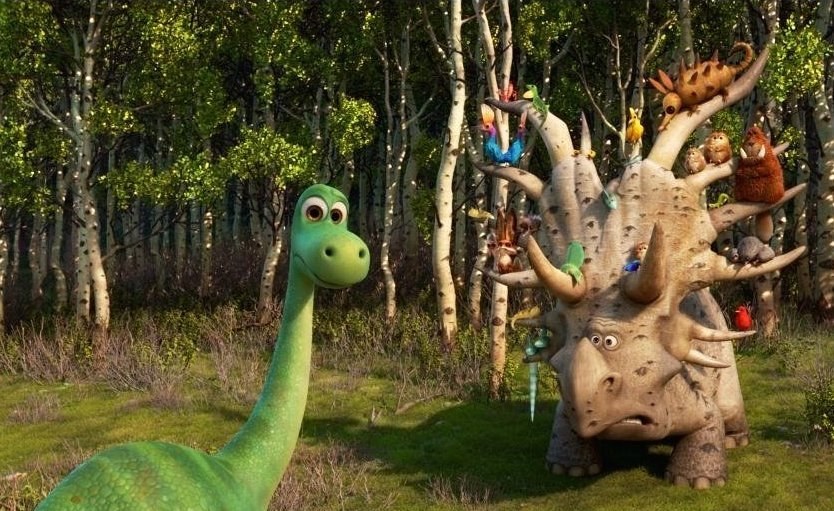
One small, sad asterisk to Disney's stellar year has been the surprisingly lackluster reception to Pixar's second feature of 2015, which is on track to be the studio's first genuine flop and its worst grossing film of all time by far, with just $108.1 million domestically, and $217.1 million worldwide, to date. The Good Dinosaur was supposed to open in the summer of 2014, but when director Bob Peterson was replaced by Peter Sohn, the film was significantly retooled and pushed to Nov. 2015 — the first time Pixar opened two films in a single year. Maybe it was too violent, dark, and intense for children? Maybe it paled in comparison to Inside Out? Maybe audiences can only take one Pixar film a year? Whatever the reason, it is doubly sad considering that it is one of the last original films Pixar has on its slate for the foreseeable future.
What's next? Finding Dory in June 2016, then Cars 3 in June 2017, Coco (an original film!) in November 2017, then Toy Story 4 in June 2018, and The Incredibles 2 in June 2019.
Loser: Warner Bros. Pictures
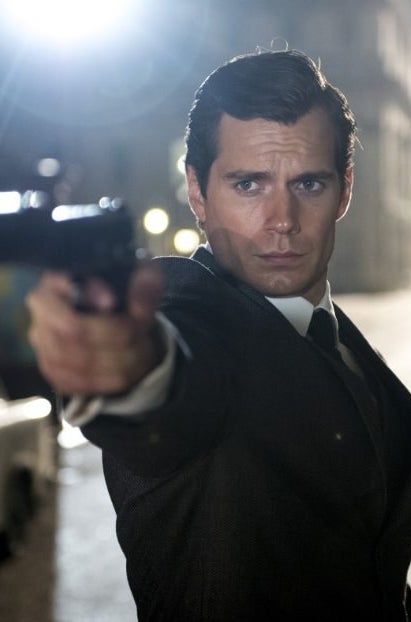
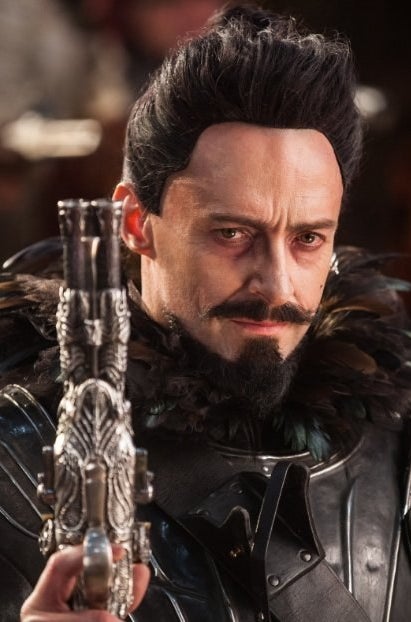
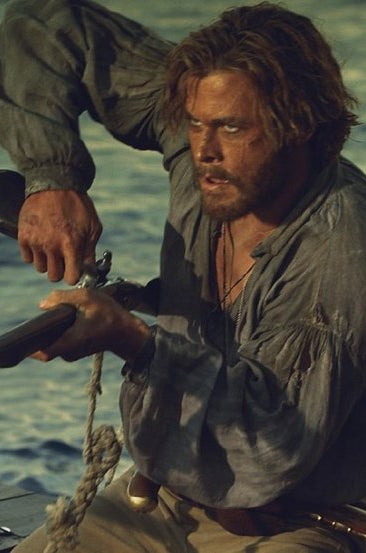
Warner Bros. started the year with a rather literal bang, when American Sniper's expanded release in January demolished box office records en route to a $350.1 million domestic gross (and $547.3 worldwide). The studio also released two new installments of two very, very long-lived franchises — Mad Max: Fury Road in May and Creed in November — that resulted in two of the most outrageously entertaining movies of the year (and which could take home some well-earned Oscar hardware in February). Magic Mike XXL was a cheap hit that, anecdotally, delivered the best theatrical experiences I've had maybe ever. And the disaster film San Andreas was also a success, for some reason.
So it wasn't all bad, is what I'm saying. But, holy shit, has a studio ever weathered this many expensive box office bombs in one calendar year? Let us just list them here in chronological order, in the saddest movie parade ever: Jupiter Ascending, Run All Night, Hot Pursuit, Entourage, The Man From U.N.C.L.E., We Are Your Friends, Pan, Our Brand Is Crisis, The 33, In the Heart of the Sea, and Point Break. These 11 films grossed a pitiable $279.5 million in North America, and $766.5 million worldwide. That's just $69.7 million per film globally — which is roughly the marketing budget for top-tier studio releases.
When Steven Spielberg famously said in 2013 that Hollywood's blockbuster-based economy was just a handful of disastrous money losers away from imploding the industry, this was the kind of thing he was talking about.
What's next? On the one hand, Warner Bros. 2016 slate looks much sturdier, with major franchise entries with maximum box office potential, including superhero epics Batman v Superman: Dawn of Justice in March and Suicide Squad in August, the Alexander Skarsgård abtacular The Legend of Tarzan in July, and the new "Wizarding World" adventure from J.K. Rowling, Fantastic Beasts and Where to Find Them, in November.
On the other hand, if even a couple of these behemoth movies fail…hoo boy.
Winner: The Intern
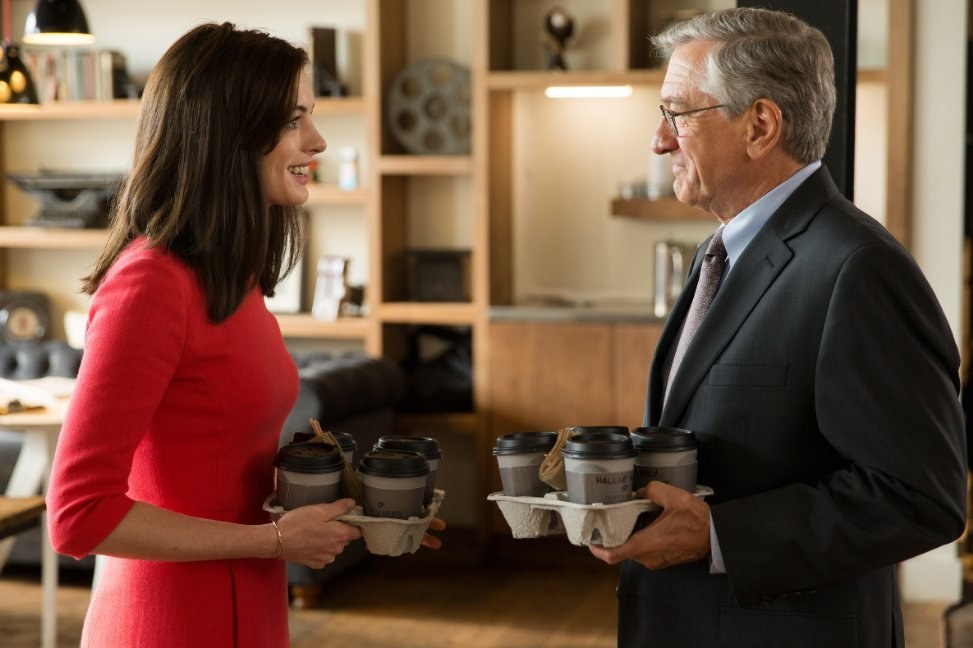
A happy asterisk to Warner Bros. abysmal 2015 was the quiet, persistent success of the Nancy Meyers dramedy The Intern, with Anne Hathaway and Robert De Niro. It opened to a respectable $17.7 million in North America in September, and then it plugged along through the fall to a $75.3 million domestic gross, and $193.6 million global gross, against a reported budget of $35 million. Had the studio invested in a few more of these modestly budgeted original films instead of, say, spending a small fortune on another Peter Pan movie, its box office may not be quite so soaked in red ink.
What's next? Meyers told the Associated Press in September that her next film would re-team her with Steve Martin. Hathaway will reprise her role as the White Queen in Alice Through the Looking Glass, and De Niro will go shirtless opposite Zac Efron in Dirty Grandpa in January.
Winners: Kathleen Kennedy and Frank Marshall
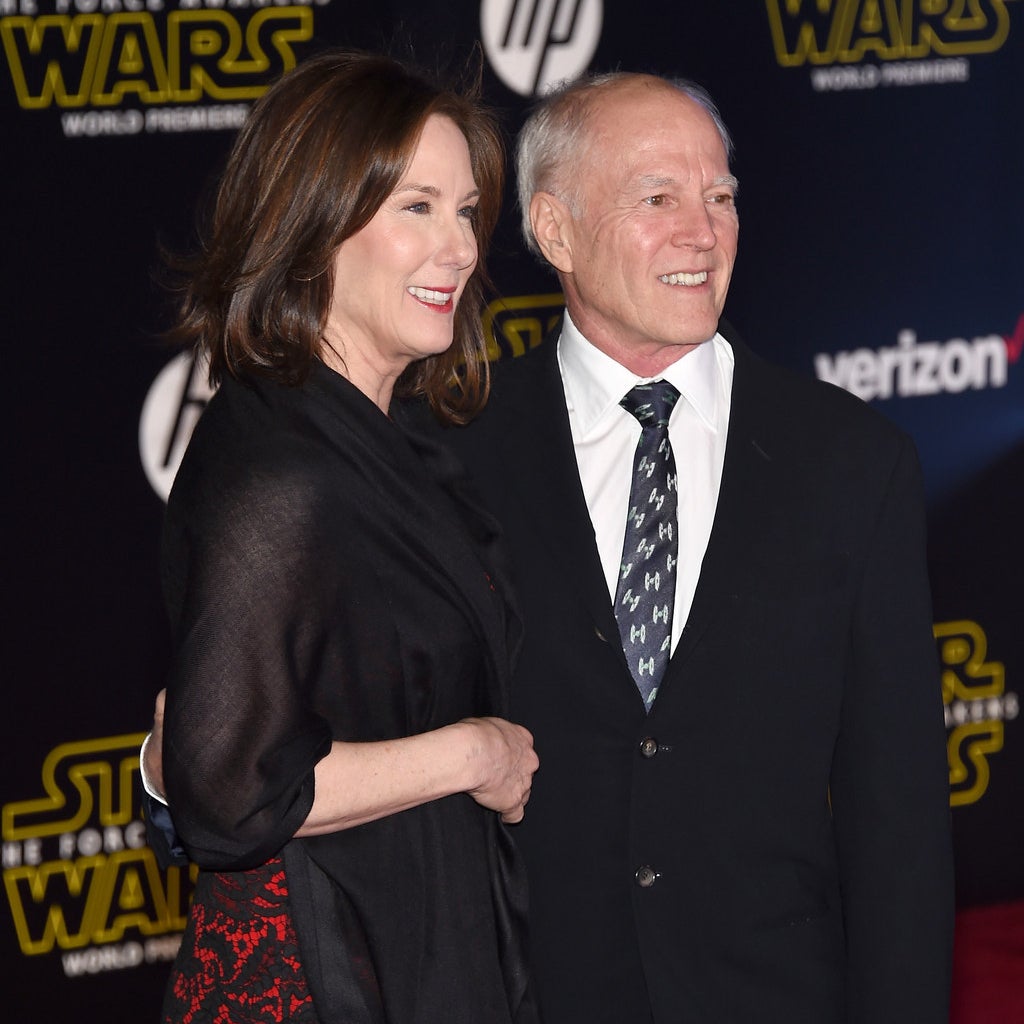
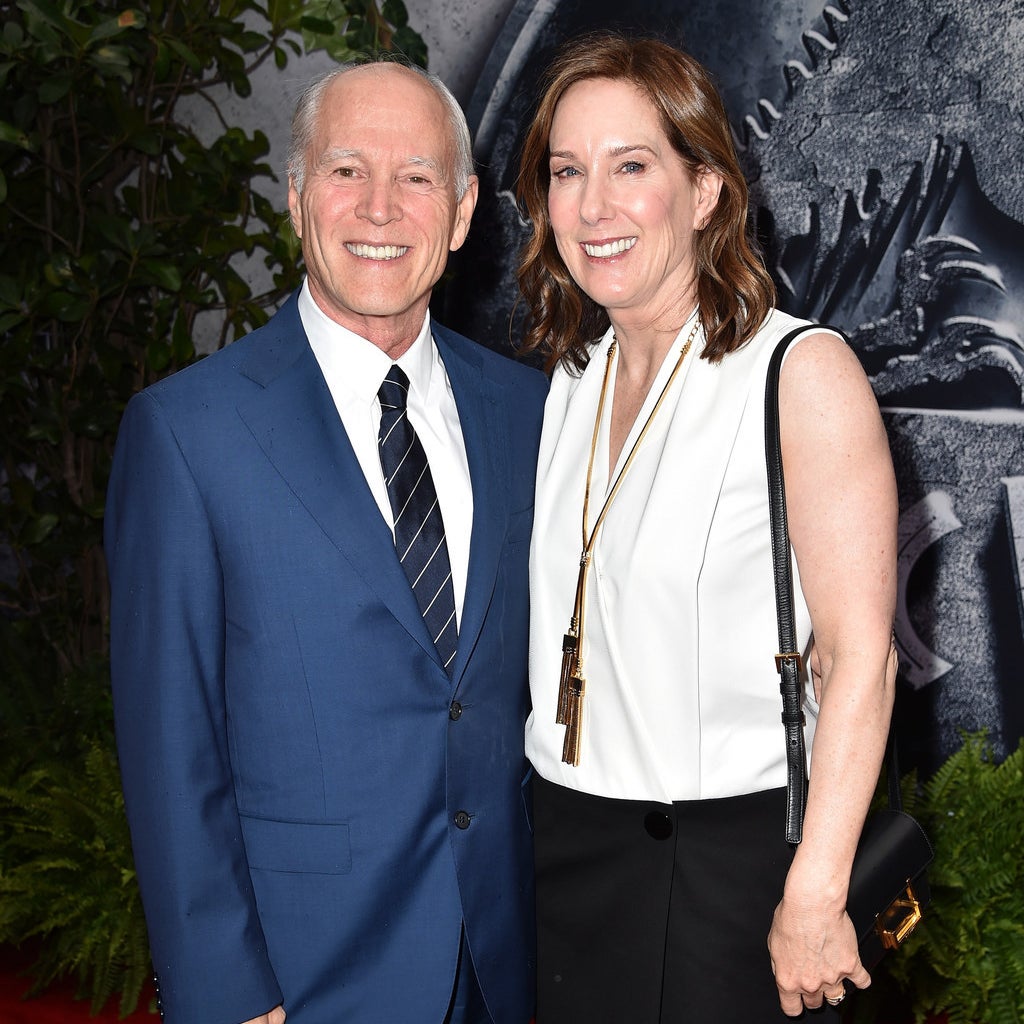
These partners in work and in life have been making blockbusters together and separately since the early 1980s, but this year the duo became arguably the most successful and powerful married couple in Hollywood, well, ever. Marshall relaunched the moribund Jurassic Park franchise with the $1.7 billion–grossing Jurassic World, which in any other year would be the story. But you may have heard that Kennedy — who has been president of Lucasfilm since George Lucas retired in 2012 — relaunched the equally dormant Star Wars franchise this December. The Force Awakens should overtake Jurassic World's domestic and global record in a matter of weeks, if not days, and already Kennedy is the most successful active movie producer who isn't Steven Spielberg ever in Hollywood. And yet, it is a measure of the latent sexism in the movie industry that Kennedy's enormous achievement has gone under-heralded, and in some cases, ignored altogether.
What's next? Marshall will have a packed 2016, with The BFG, the new Bourne film, Tom Hanks in director Clint Eastwood's Chesley Sullenberger biopic Sully in September, and Michael Fassbender in the video game adaptation Assassin's Creed in December. For Kennedy, it will be more Star Wars, presumably for the rest of her life, and probably for the rest of time.
Losers: Angelina Jolie and Brad Pitt
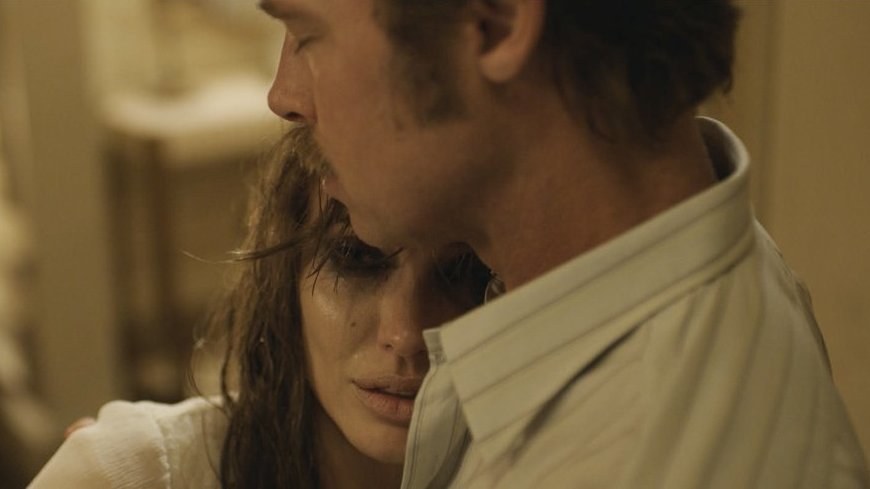
As one of the hundreds who actually saw By the Sea — the first on-screen collaboration between the world's most famous movie stars who also happen to be married to each other since 2005's Mr. and Mrs. Smith — I am also among the tens of people who actually enjoyed it. Jolie is an interesting director with a clear point of view, and she captured one of Pitt's strongest performances in years.
But, alas, By the Sea made just $538,000 in North America, and $2.6 million worldwide, against a reported $10 million budget. That is not what you would expect from the world's most famous movie stars who also happen to be married to each other. It is highly doubtful any studio will be handing the pair an eight-figure budget to make a European art film again. What is more concerning: when, or whether, Jolie will direct again for a Hollywood studio, period.
What's next? Kung Fu Panda 3 in January will feature Jolie reprising her voice role as Tigress, but she has yet to announce her next directing project. At some point in 2016, Pitt will star in the Netflix feature War Machine, a satire about the war in Afghanistan.
Winner: Amy Schumer

After Amy Schumer's Comedy Central show exploded in popularity and cultural impact, Trainwreck, her first starring role and feature screenplay, earned $110.2 million domestically and cemented Schumer as a major new force in American comedy. Then she became best friends with Jennifer Lawrence, and wrote a screenplay with Lawrence and Schumer's sister, Kim Caramele. I am sure there is something else that Schumer could have done this year that would've made it even better — she could have discovered a cheap, renewable energy source, maybe? Brokered peace in the Middle East? Pushed for stronger gun safety legislation? Oh wait, she did that last one already.
What's next? That aforementioned J. Law–A. Schu script is, according to Lawrence, currently floating around Hollywood. Schumer also has a mother-daughter action comedy in the works as well, but nothing firm yet for 2016. She's done enough.
Winners: F. Gary Gray and Ryan Coogler

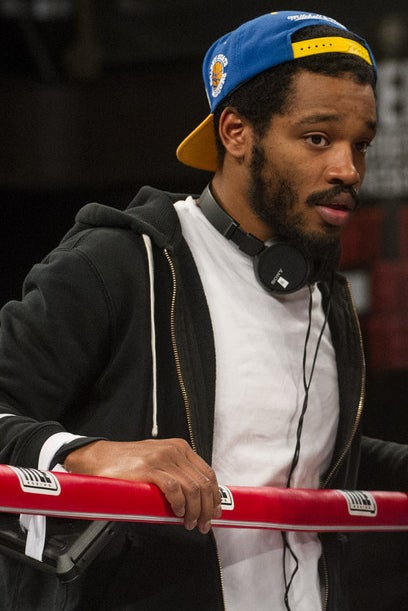
Quick, name two black directors who have directed successful, acclaimed movies for Hollywood studios and parlayed that success into taking the reins of massive movie franchises — in the same year. Until 2015, you could not do that! Straight Outta Compton, F. Gary Gray's biopic of rap superstars N.W.A., and Creed, Ryan Coogler's savvy expansion of the Rocky franchise, have earned wide critical praise and honest awards season buzz along with their robust box office returns. As a result, Gray and Coogler have found themselves in the all-too-rare position of being among the industry's most in-demand filmmakers. More of this, please!
What's next? Gray will direct Furious 8, due in April 2017, and Coogler is reportedly in talks with Marvel Studios to direct Black Panther, due in February 2018.
Loser: Josh Trank
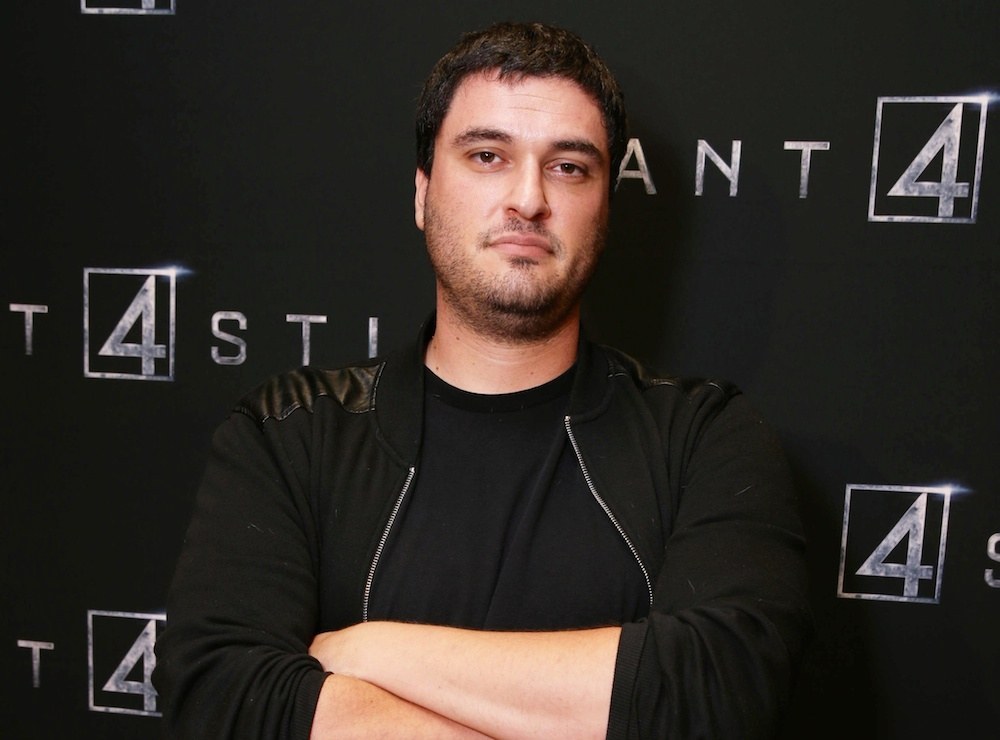
The rollout of Fantastic Four could not have gone worse for its 31-year-old director. There were the early reports of on-set strife and troubled reshoots, as well as Trank's own tweet — which he deleted, well after it had done its damage — repudiating the final version of the film. That prompted unnamed sources to spill stories of Trank's purported "combative and abusive behavior" to Entertainment Weekly. And then the film flopped, grossing just $56.1 million domestically, and $168 million worldwide, against a reported $120 million budget, considerably worse than the lackluster 2005 and 2007 Fantastic Four films that Trank's reboot was supposed to surpass. His position in director jail is certified for the foreseeable future.
What's next? ¯\_(ツ)_/¯
Winners: Daisy Ridley and John Boyega
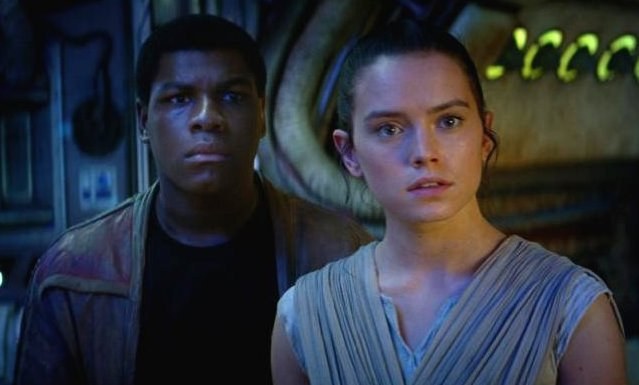
Before The Force Awakens, no one had heard of Daisy Ridley, and only fans of the British sci-fi indie Attack the Block had heard of John Boyega. Now the 23-year-olds are the most well-known actors in the world, embodying brand-new Star Wars heroes with considerable acting chops, and handling their sudden fame with impressive poise and aplomb. The world is their oyster.
What's next? 2017's Star Wars: Episode VIII with writer-director Rian Johnson, of course, and Boyega will also star in the 2016 tech thriller The Circle (based on the Dave Eggers best-seller), with Tom Hanks and Emma Watson.
Winner: Ridley Scott

After the wilderness of 2013's The Counselor and 2014's Exodus: Gods and Kings, the 78-year-old director scored both his biggest hit to date with the sci-fi adventure The Martian, and arguably the best reviews of his career (or at least since 2000's Gladiator and 2001's Black Hawk Down). With the Oscar race so wide open, Scott also has the best shot since 2001 of earning his first Oscar for Best Director.
What's next? The Prometheus sequel Alien: Covenant for 2017.
Loser: Relativity Media's 2015 slate
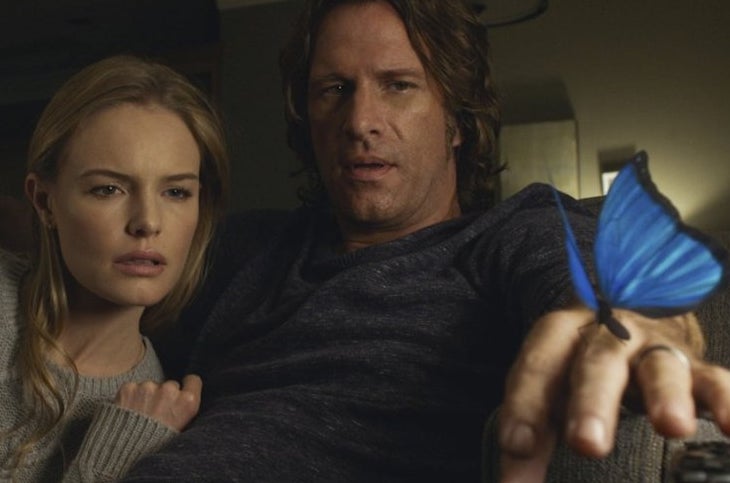
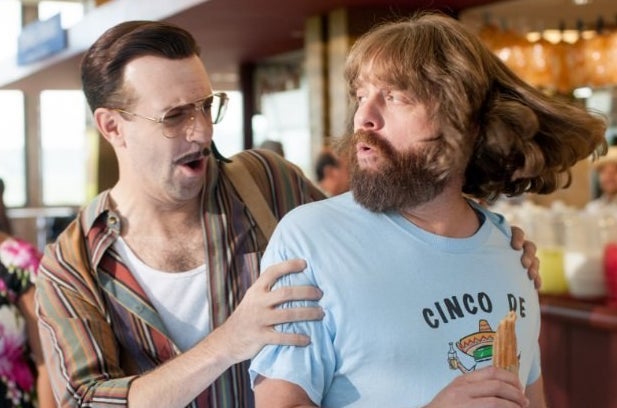
For much of 2015, this independent mini-studio has been mired in a Chapter 11 bankruptcy battle that paralyzed the financially troubled company from releasing any movies, which it hasn't since last April. A couple films broke free: The Natalie Portman western Jane Got a Gun escaped to the Weinstein Company and will open in January, and the raunchy Sundance comedy The Bronze, starring The Big Bang Theory's Melissa Rauch, decamped to Sony Pictures Classics, and will open in March. But while Relativity still plans to release most of its backlog in 2016 to get back on surer footing, its bankruptcy status is as yet unresolved, and so is the fate of its movies.
What's next? Supposedly, Relativity will release the horror films The Disappointments Room (with Kate Beckinsale) and Before I Wake (with Kate Bosworth) in March and April, respectively; the Halle Berry thriller Kidnap in May; and the Kristen Wiig–Zach Galifianakis comedy Masterminds in September. Supposedly.
Winner: Illumination Entertainment
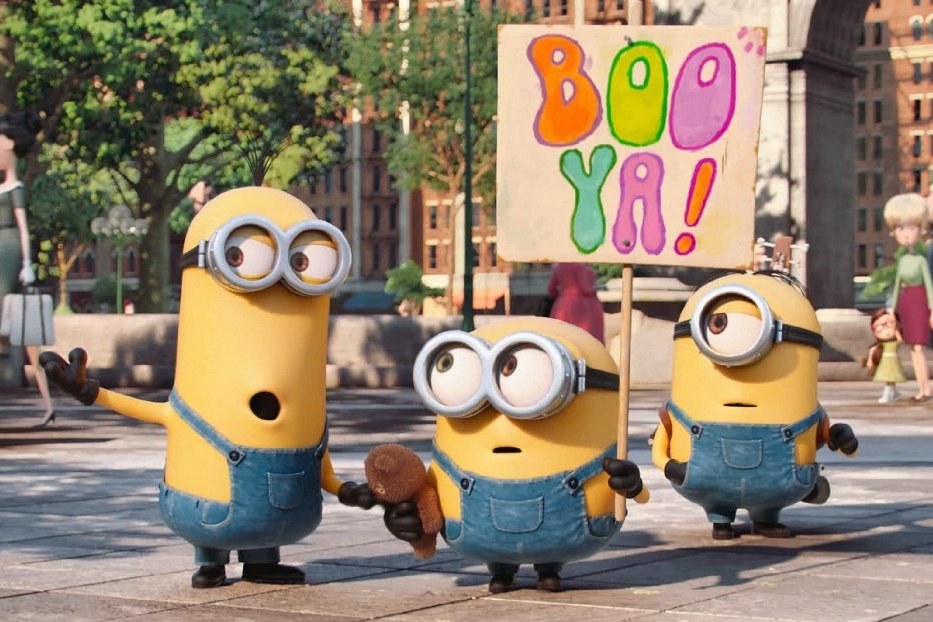
Like the bottomless pit of sexual innuendo and fantasy one can apparently find in lemon-colored, pill-shaped creatures who speak in baby talk, the commercial potential for the Minions apparently knows few boundaries. The film that bears their name — a prequel of sorts to the two Despicable Me movies, though with Minions, do the rules of time and space really matter? — grossed a towering $1.16 billion worldwide this year, making it the second highest grossing animated feature of all time in raw dollars, next to 2013's Frozen. That is a massive validation for the frugal operational philosophy of Illumination Entertainment's founder Chris Meledandri. Now all the upstart animation studio has to do is prove it can make obscene amounts of money without its army of lucrative yellow meme generators.
What's next? And Illumination will get that chance twice over in 2016, first with the diabolically cute The Secret Life of Pets in July, and then with the animals-meets-American Idol romp (that is likely also diabolically cute) Sing in December.
Loser: Horror
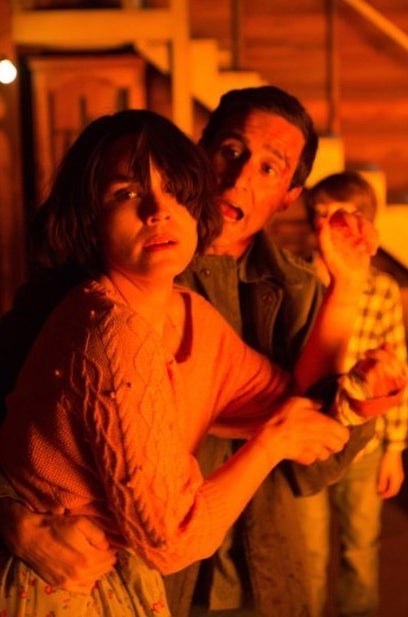
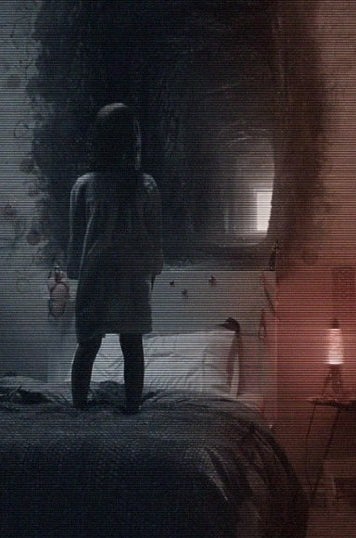
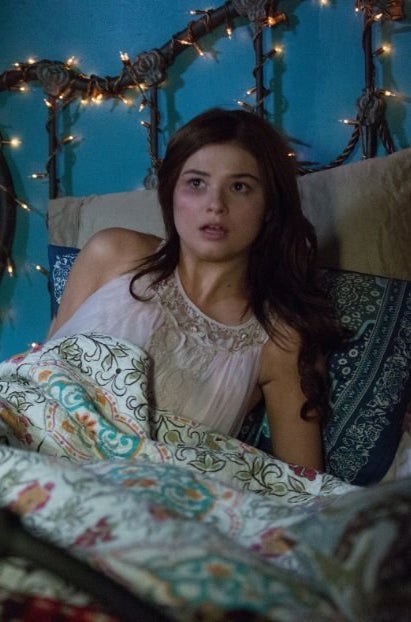
Artistically, horror remains on strong footing, especially within the world of independent cinema. But to get a sense of the, ahem, frightening commercial state of the genre, consider that no horror movie opened at No. 1 at the domestic box office in 2015, something that hasn't happened since 1995 (or 1993, if you consider Seven and Interview With the Vampire horror films). M. Night Shyamalan's The Visit did bank $97.1 million worldwide off a reported $5 million budget, and the studio remake of Poltergeist did OK, with $95.4 million worldwide against a reported $35 million budget. But Insidious: Chapter 3, Sinister 2, and Paranormal Activity: The Ghost Dimension struggled to earn half as much as their predecessors, and Crimson Peak and Victor Frankenstein proved once again that larger budgets and opulent production values are not surefire ways to draw in a horror audience. We've reached that low ebb in the horror genre life cycle where virtually all of the major horror franchises are played out, and almost nothing seems poised to take their place. That is, except…
What's next? The Conjuring 2: The Enfield Poltergeist, which opens in June. Given that the 2013 original made $318 million worldwide, and the 2014 prequel Annabelle made $256.9 million worldwide, this third film should likely, you know, scare up some considerable business. There's also the living doll horror of The Boy in January, the 17th-century colonial horror of The Witch in February, the supernatural dead son horror of The Other Side of the Door in March, and the you'd-think-they'd-learn-by-now-not-to-watch-the-damn-tape sequel horror of Rings in April.
Winners: Woman in Gold, A Walk in the Woods, Mr. Holmes
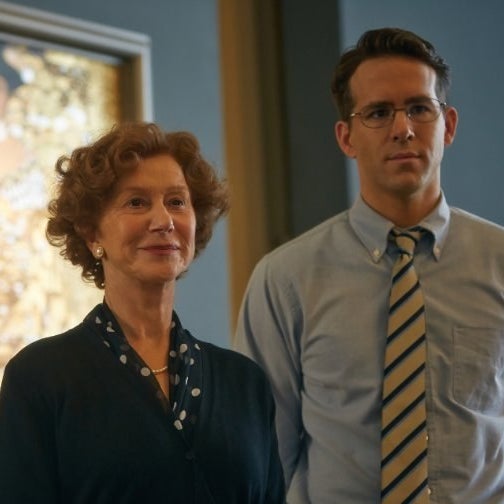
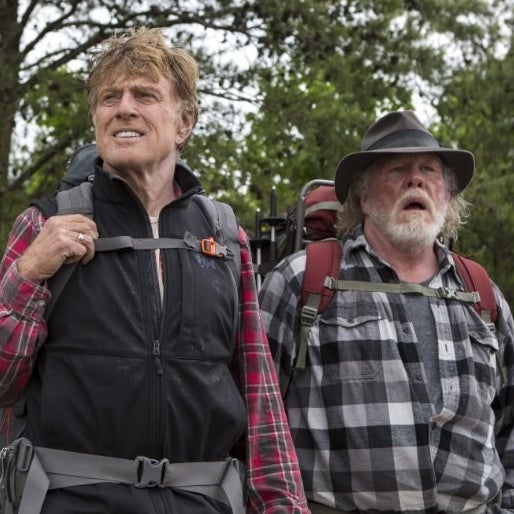
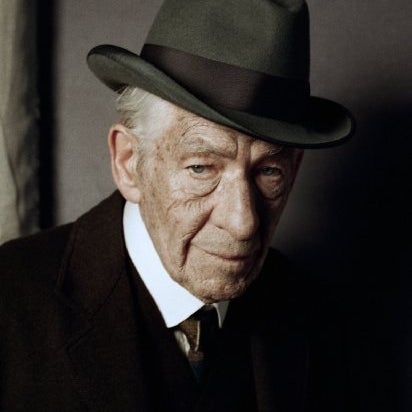
Independent cinema flourished this year with a bounty of superlative films — Room, Carol, Tangerine, The Clouds of Sils Maria, The Diary of a Teenage Girl, Love & Mercy, What We Do in the Shadows, Mistress America, and that is just scratching the surface — but almost all of them barely made a dent at the box office.
That is, except for this trio of features about people in their twilight years: Woman in Gold (grossing $33 million domestically), about Maria Altmann (Helen Mirren), the octogenarian Jewish refugee who fought the Austrian government for restitution of a Gustav Klimt painting; A Walk in the Woods ($29.5 million), about two old friends (Robert Redford and Nick Nolte) walking the Appalachian Trail; and Mr. Holmes ($17.7 million), starring Ian McKellan as the famed detective Sherlock Holmes in his nineties. Appealing to Baby Boomer retirees with disposable income and lots of free time clearly pays off, so obviously a huge wave of more films like that are coming to theaters soon.
What's next? The January De Niro–Efron comedy Dirty Grandpa probably doesn't fit the bill, does it? March's drone warfare film Eye in the Sky, with Helen Mirren and Alan Rickman, gets closer to the mark. Wait, found it: Remember, a Holocaust revenge thriller, starring Christopher Plummer and Martin Landau, in February. But maybe that huge wave is just too far out to see?
Loser: The Weinstein Company
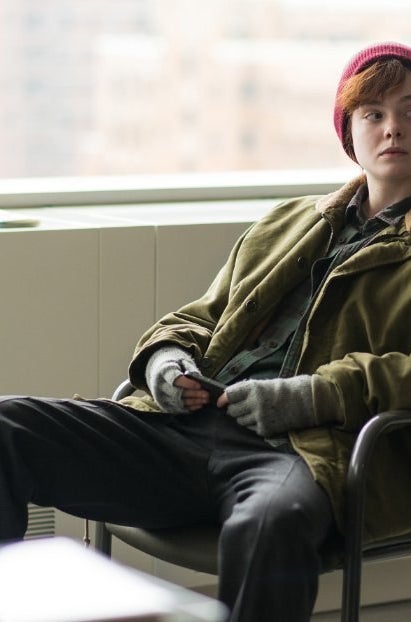
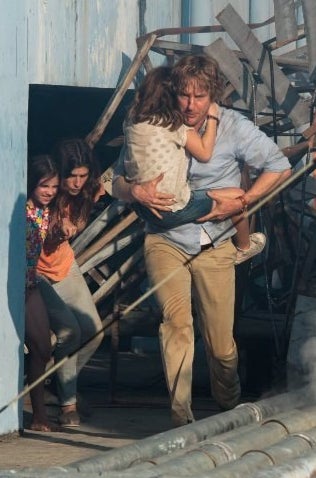

This perhaps seems counterintuitive. TWC had a genuine hit with Paddington ($76.2 million domestically), the aforementioned Woman in Gold did so well, and 2014's The Imitation Game picked up roughly $71.2 million in North America in 2015 on the strength of its awards season buzz. Plus, last July's Jake Gyllenhaal boxing drama Southpaw earned a solid-if-modest $52.4 million domestically.
But the thriller No Escape was an embarrassing, xenophobic disaster, grossing just $27.3 million and well-earned scorn for its bizarrely racist depiction of a bloodthirsty, war-torn, nameless Asian country where a group of white Americans are trapped. And the Bradley Cooper chef drama Burnt tempted headline writers everywhere when it fizzled with just $13.6 million in a preposterously wide release that earned Cooper one of the absolute worst debuts of his career. Then there was the odd decision to pull the release of the drama About Ray, starring Elle Fanning as a young trans man and Naomi Watts as his single mother, after its premiere at the Toronto International Film Festival, on top of the terrible press from TWC's decision to bury the release of Jean-Pierre Jeunet's The Young and Prodigious T.S. Spivet seemingly out of spite because Jeunet declined to re-edit the film. Meanwhile, Carol, one of the year's most acclaimed films and a major awards season contender, has had an excruciatingly slow theatrical roll out, earning just $2.9 million in no more than 180 theaters since Nov. 20 — right after the company reportedly laid off between 40 and 50 staffers.
Quentin Tarantino's The Hateful Eight could provide a helpful shot in the arm for TWC as the movie expands wide into January, but given its mixed reviews and nearly three-hour runtime, the company had better not need the film to equal the career-best grosses of Tarantino's Inglourious Basterds and Django Unchained.
What's next? Jane Got a Gun in January, the horror films Regression and Viral through TWC's genre division Dimension Films in February, and Crouching Tiger, Hidden Dragon: Sword of Destiny in partnership with Netflix, also in February.
Winner: A24
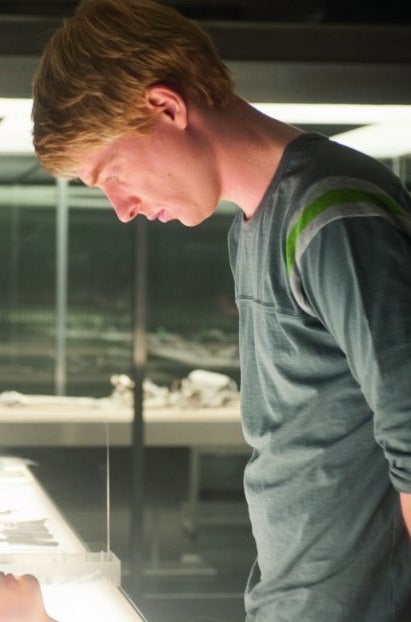

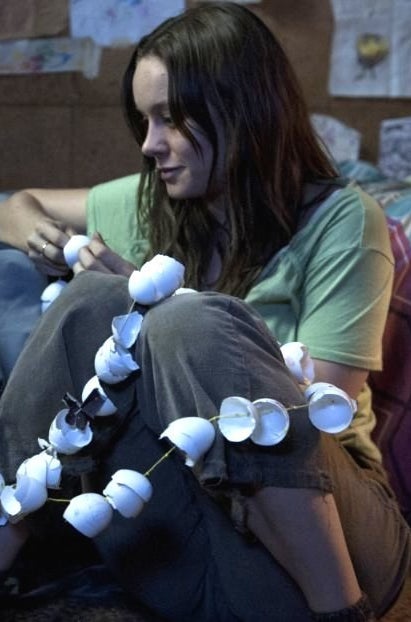
The sci-fi drama Ex Machina, which earned $25.4 million in North America, is the biggest box office hit ever for this young independent film company. That isn't a massive record in the grand scheme of indie filmmaking — A24 has yet to land its own Little Miss Sunshine or Pulp Fiction breakthrough sensation. But the film's wide acclaim did help to solidify A24's reputation for having uncanny taste for cutting-edge cinema that generates a cultural impact well beyond box office figures. That taste was reinforced in July with the devastating Amy Winehouse documentary Amy, and once again with the October debut of Room, another film that won "best of the year" praise. And the tiny theatrical box office of A24's standout films like Slow West with Michael Fassbender and Ben Mendelsohn, and Mississippi Grind with Ryan Reynolds and Ben Mendelsohn, are mitigated by the company's exclusive distribution deal with DirecTV — and the fact that A24 keeps hiring Ben Mendelsohn. In the over-crowded indie film marketplace, the ability to cut through the noise with movies that dominate the conversation is an increasingly valuable asset, and this year, no one did that more than A24.
What's next? The two-hander thriller Mojave with Oscar Isaac and Garrett Hedlund in January; the Holocaust revenge thriller Remember and the 17th-century period witchcraft horror film The Witch in February; and the punk rock horror-thriller Green Room with Patrick Stewart, Anton Yelchin, Imogen Poots, and Alia Shawkat in April.
Loser: Jem and the Holograms

Truly, truly, truly outrageous.
What's next? Notoriety.
Winner: The Gift
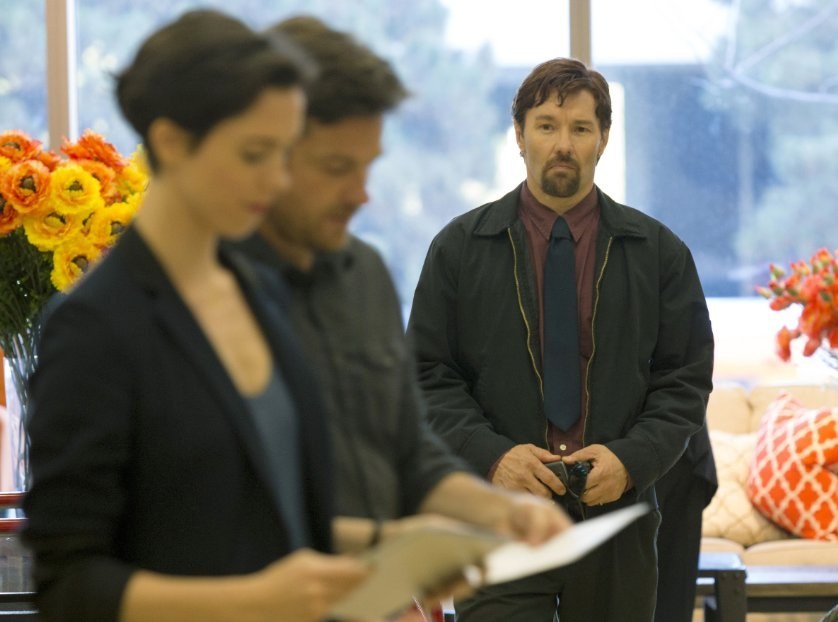
Every summer, there is a movie that is a "Omigod, no, seriously, you have to see it" word-of-mouth hit, and this year that prize went to this tight, unnerving thriller about what happens when high school acquaintances reunite and old, hard feelings re-emerge. Actor Joel Edgerton made his feature directing debut here, demonstrating a shrewd facility for building tension and throwing audiences off kilter just enough that even if you can see the film's final twist coming, it is no less unnerving. The film made over 10 times its reported $5 million budget worldwide.
What's next? Edgerton will co-star in Jane Got a Gun in January, and the sci-fi drama Midnight Special in March. He hasn't announced his next project as a director.
Draw: Adam Sandler
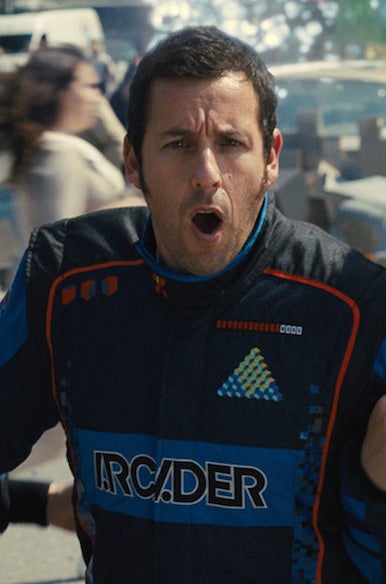
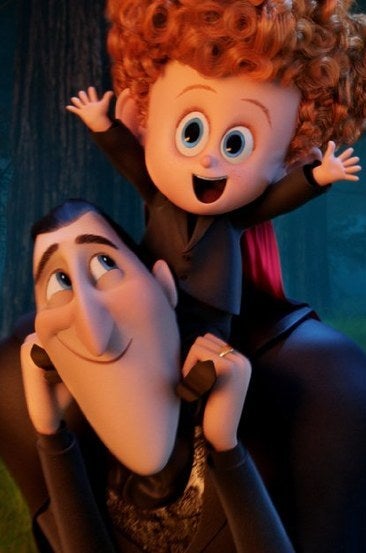
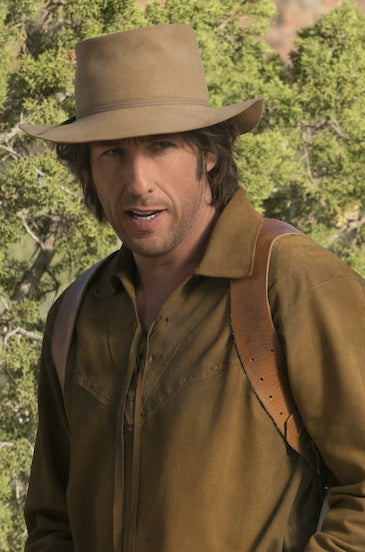
The 49-year-old (!) comedian's box office drawing power hasn't been at its peak in quite some time, but even though Sandler's sci-fi comedy Pixels was a glitchy nonstarter in North America, grossing $78.7 million, it was enough of a hit internationally that it is among Sandler's most successful worldwide movies ever, with $243.9 million. Then there's the animated sequel Hotel Transylvania 2, which is, believe it or not, the biggest hit of his career, both domestically (with $167.8 million), and globally (with $456.2 million). Even with the microscopic release of Sandler's terribly reviewed, bizarrely plotted comic fable The Cobbler, this was the best year he's had in awhile.
Or, it would have been, if only Sandler had thought better of making the limp, dumb Western comedy The Ridiculous Six as part of his new deal with Netflix. The script reportedly caused about a dozen Native American actors to walk off the set in April, and there was scarcely any promotion for the film in advance of its debut Dec. 11. Netflix doesn't release audience data, so it is impossible to know how many people actively chose to watch the movie, but if they did, apparently they got to see Taylor Lautner get a blow job from a donkey.
What's next? Sandler's next film with Netflix, ironically titled The Do Over, will open at some point in 2016.


